Pilot programme seeks to align artisan training with industry needs

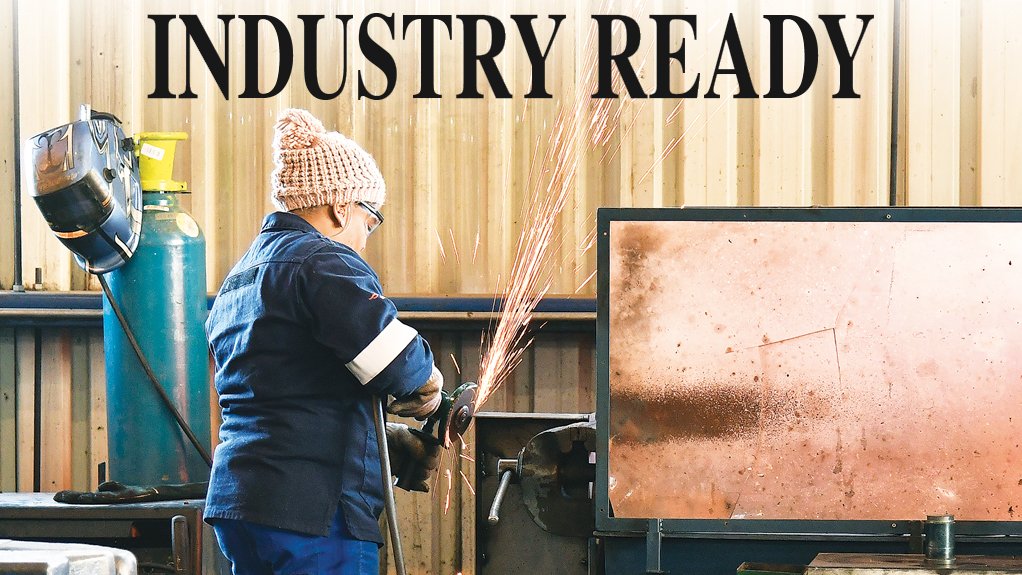
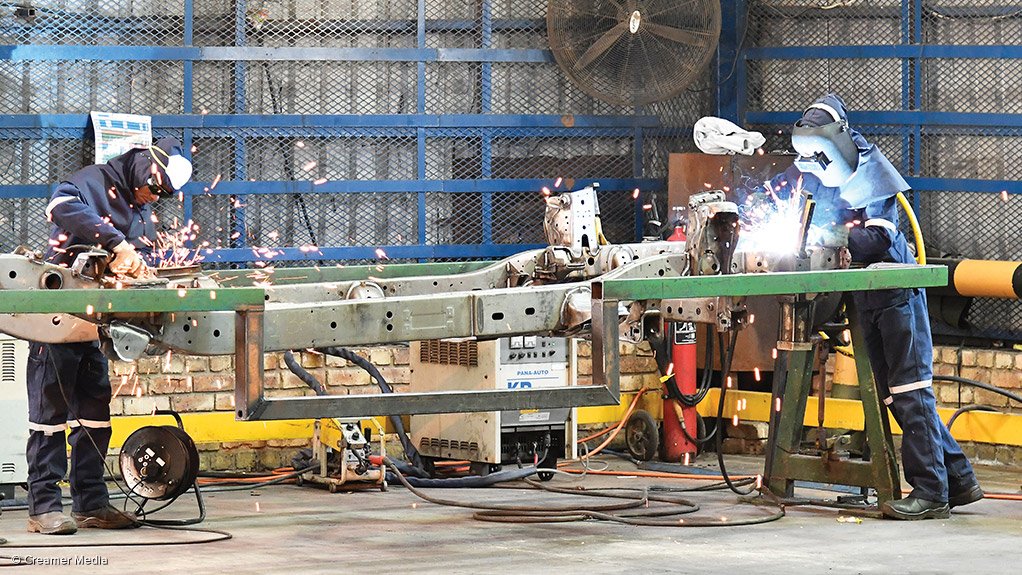
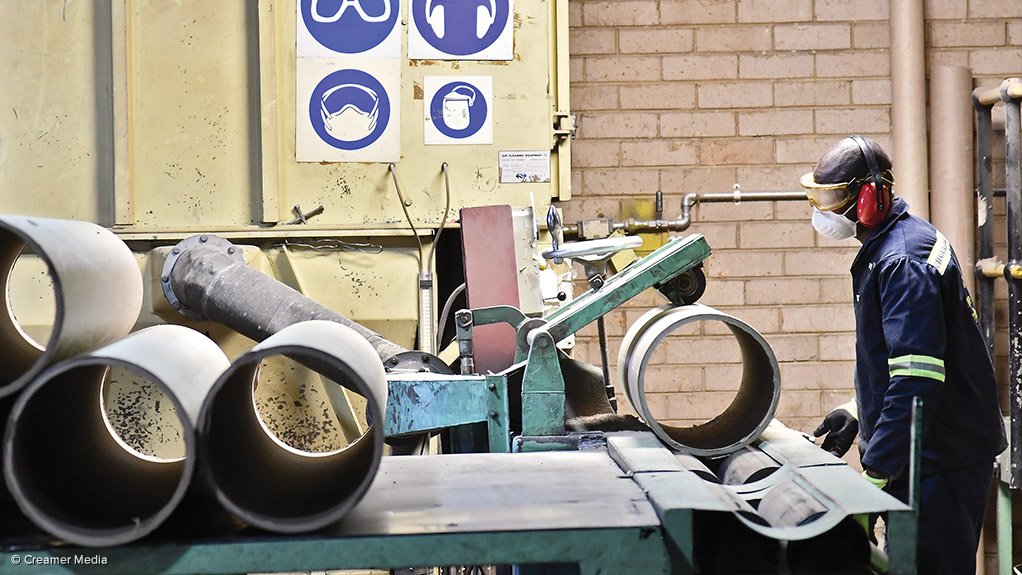
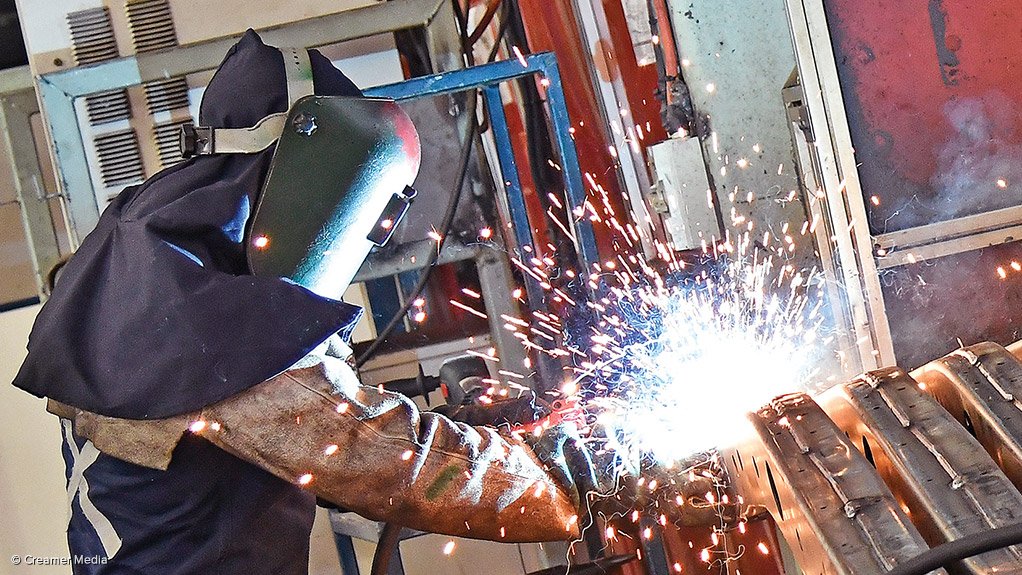
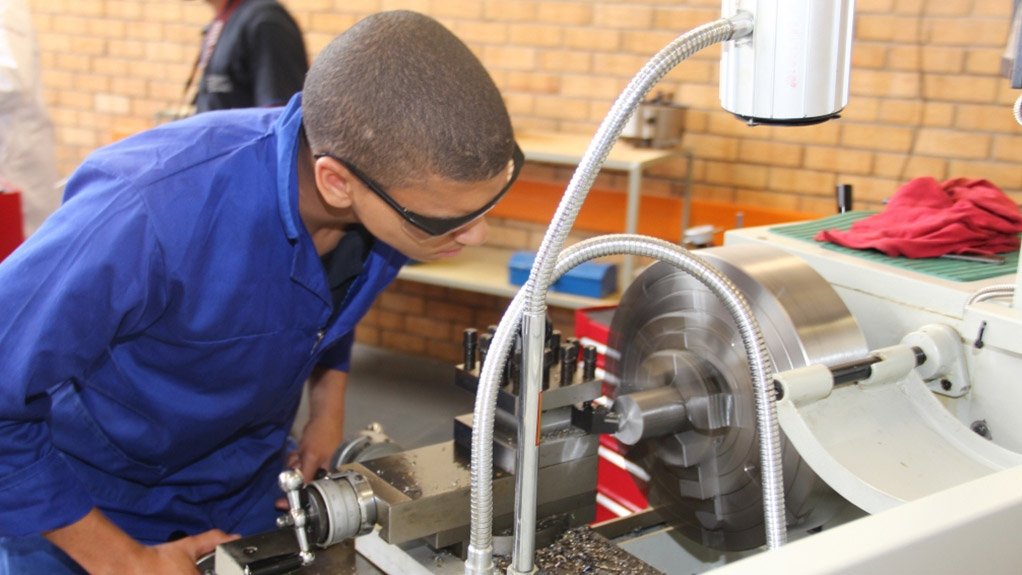
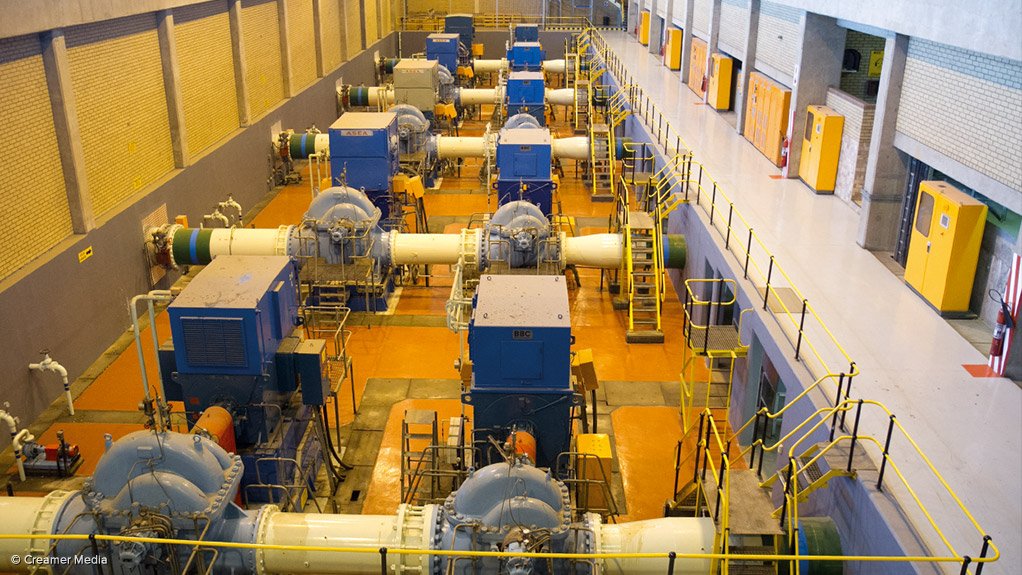
HIGH DEMAND There is demand for highly skilled welders in South Africa
Photo by Dylan Slater
ARTISANAL EXPOSURE industries and associations are key partners to ensure that skills meet industry norms
Photo by Dylan Slater
INFRASTRUCTURE SKILLS The programme aims to capacitate the TVET colleges to produce the quality and quantity of artisans required to meet the country’s infrastructure needs
Photo by Dylan Slater
TRAINING DETAIL The frequent interactions between workplace and provider in the dual-system methodology support industry input
UTILITY SCALE Exposure to supply-side bulk water and demand-side consumption will enable artisans to meet health and safety standards in different parts of the industry
Photo by Duane Daws
The Centres of Specialisation pilot programme has been launched by the Department of Higher Education and Training (DHET) to develop a focused and industry-led apprenticeship structure for 13 priority trades required for infrastructure development.
The objective is to test the effectiveness of direct private-sector involvement in the training of artisans to ensure that up-to-date training, which fulfils the necessary practical experience requirements of their qualifications, is provided.
“This will be supported by the Quality Council for Trades and Occupations’ (QCTO) trade qualifications as a South African adaptation of the dual-system apprenticeship models used in Germany, Switzerland, Austria, Japan and India. Our trade-partner countries, as well as the European Union, have provided detailed input for the programme,” says DHET Special Projects Unit Centres of Specialisation head Adrienne Bird.
The 13 trades form part of the 94 technical trades that were identified as essential for the roll-out of the 18 Strategic Integrated Projects (SIPs) under the National Infrastructure Plan. The focus on trades in high demand aims to ensure that the strategic projects of government will be constructed and maintained using skilled South African artisans.
Twenty-six existing technical and vocational education and training (TVET) colleges will provide specialised training in one or more of the 13 trades and will manage the practical training of students at private industrial companies.
A centre of specialisation is a department within a public TVET college campus dedicated to training high-quality artisans in sufficient numbers in partnership with employers to meet the needs of the SIPs and development projects, explains Bird.
The programme is specifically aimed at capacitating the TVET colleges to produce the quality and quantity of artisans required, she emphasises.
“Quality standards and quantity targets are to be set for each trade, which are to be attained over the life span of the Centres of Specialisation Programme that will run to 2022. The selected colleges will be provided with resources to upgrade workshops and equipment to deliver the training effectively,” states Bird.
Centres of specialisation will implement new trade qualifications registered on the National Qualifications Framework by the QCTO. These new qualifications have been developed to overcome the historical spread of uneven sector education and training authority (Seta) trade qualifications and provide one national standard for each trade that is easily understood in the labour market.
“After the 13 trades were identified, we approached industries and their associations as key partners and were told that the skills the colleges produce do not meet industry norms. We approached all the industry associations to work with us to build the capacity of the colleges and accelerate how we produce these skills,” she says.
The Steel and Engineering Industries Federation of Southern Africa, the Retail Motor Industry Organisation (RMI), the Institute of Plumbing South Africa and the Southern African Institute of Welding (SAIW) are the first four industry associations participating in the programme.
Apprenticeships
The DHET is working with the South African Qualifications Authority and industry partners to identify employers located near the centres of specialisation colleges that are willing to provide apprenticeship positions for the students.
“Fortunately, we had many more expressions of interest – more than 1 000 – to take in apprentices than we have students in this first phase of the programme,” says Bird.
At this stage, the DHET is focusing only on 26 colleges, but hopes to roll out the artisan apprenticeship model across the country, as well as to new colleges and trades in time, if the programme is successful. The model will motivate industry stakeholders and employers across the public and private sectors to partner with TVET colleges and build a high-quality apprenticeship system, she adds.
“Through these partnerships and the quality of vocational education and training provided, the DHET hopes that society’s confidence in the TVET sector will grow and that the TVETs will become institutions of choice for students and partners of choice in training for industry employers. The DHET is appointing two facilitators for each college and is working to ‘train the trainer’,” details Bird.
RMI national training director Louis van Huyssteen says skilled artisans are crucial for South Africa to address its development. RMI members are encouraged that the theoretical and practical will be delivered at the colleges and the workplace experience component that will take place at individual workplaces.
Employer members participating in the programme will benefit from South African Revenue Service tax rebates, incentives and a return on investment if they employ an apprentice, he adds.
The centres of specialisation model ensures the apprentice is in the employ of the company for a full three years before qualifying, increasing the possibility of employment after qualifying.
“Industry’s demand for qualified artisans is such that the newly qualified artisan will get appointed to a vacant position by the same employer or another employer,” he avers.
The frequent interaction between workplace and provider in the dual-system methodology will support and afford opportunities for industry input. Further, each TVET college will have a structure consisting of employers, college staff, management and occupational team members to ensure the project delivers the results as envisaged by the DHET and the industry, he states.
Funding
Crucially, the training programme, which includes the apprenticeship periods that students spend under the tutelage of a qualified artisan, is funded by the Setas. The apprentices are neither employed by the companies in which they complete their work experience nor are they guaranteed a job afterwards.
However, they will have up-to-date and first-hand exposure to the industry, and this will boost their chances of securing employment. The higher quality of education and skills that the artisans would have acquired because of their workplace experience will enable them to enter a work environment directly and contribute fully and effectively, explains Bird.
“We have 780 confirmed grant commitments from Setas, meaning there is a grant for every contracted apprenticeship in the programme. The National Skills Fund has set aside R150-million to support the colleges to ensure that they are up to date and ready,” Higher Education and Training Minister Naledi Pandor said in March.
“We want to use fiscal funds to pay for the theory and the simulated practical components, while the levy continues to fund the employer grant. Further, partnerships with the private sector in this practical space will be considered and, if agreed, funded. This will mean your tax will be working harder for you as they will be funding programmes that meet your needs.”
The pilot project is highly strategic and the department will roll it out incrementally to other trades and colleges at system level when its monitoring and evaluation is done, she said.
The industry associations said their members welcomed the initiative and the focus on improving the colleges to produce the skills that industries need, although there is some hesitation among members to support another industrial training initiative.
SAIW business development manager Etienne Nell confirms that members welcome the idea, but are still hesitant because the old learnerships were not phased out more quickly and the economy is not favourable, with training remaining in the background.
“There is huge demand for highly skilled welders in South Africa, as well as worldwide, with the American Welding Society indicating in its annual report that there will be a shortage of 450 000 welding personnel in the US by 2023. There are many welders in South Africa, but they cannot get jobs with their current qualifications because they have not been properly trained and trade-tested,” Nell explains.
The Centres of Specialisation project will deliver highly skilled welders, with their qualifications aligned with the International Institute of Welding guidelines and, therefore, accepted in 58 countries, he adds.
Currently, all major projects in South Africa, such as the giant Medupi and Kusile coal-fired power station projects, use only imported welders, because of their high skill levels. When a new apprentice exits this programme, he or she will have the required skill level and be suitable for employment on infrastructure development projects, says Nell.
However, a crucial difference is the inclusiveness of the process, involving the associations, colleges, academic experts, the DHET and labour organisations to develop an effective and sustainable artisanal skills development model for South Africa, adds Van Huyssteen.
“Employers are positive about the programme and specifically the integrated training of the dual system. This linking of the training provider and the employer is necessary to supply trained individuals for industry,” says the Institute of Plumbing South Africa national training manager Nick Joubert.
The water industry is an especially important industry, as it is directly linked to sanitation and healthy drinking water. Greater exposure to industry best practices, new technologies and skills used in the supply-side bulk water and demand-side consumption portions of the industry will broaden the knowledge of the apprentices and deepen the impact of artisan training across the industry, he says.
Moreover, the industry has a major problem: many who work professionally in the water industry, particularly in the domestic market, are not qualified and have not completed their trade test.
There is a need, beyond the centres of specialisation programme, to provide unqualified professionals with a means to access training, complete their trade tests and qualify to build and maintain the water infrastructure to minimum levels of quality, health and safety, says Joubert.
An apprenticeship model might help to develop those working in the industry to gain the required qualifications and competences, he adds.
“The model meets the requirements of industry. The welders’ curriculum was designed by industry members and the SAIW; hence, the NOCC-A21 welders’ curriculum aligns with international welding qualification standards. This programme will serve the market well for a very long time,” Nell concludes.
Article Enquiry
Email Article
Save Article
Feedback
To advertise email advertising@creamermedia.co.za or click here
Press Office
Announcements
What's On
Subscribe to improve your user experience...
Option 1 (equivalent of R125 a month):
Receive a weekly copy of Creamer Media's Engineering News & Mining Weekly magazine
(print copy for those in South Africa and e-magazine for those outside of South Africa)
Receive daily email newsletters
Access to full search results
Access archive of magazine back copies
Access to Projects in Progress
Access to ONE Research Report of your choice in PDF format
Option 2 (equivalent of R375 a month):
All benefits from Option 1
PLUS
Access to Creamer Media's Research Channel Africa for ALL Research Reports, in PDF format, on various industrial and mining sectors
including Electricity; Water; Energy Transition; Hydrogen; Roads, Rail and Ports; Coal; Gold; Platinum; Battery Metals; etc.
Already a subscriber?
Forgotten your password?
Receive weekly copy of Creamer Media's Engineering News & Mining Weekly magazine (print copy for those in South Africa and e-magazine for those outside of South Africa)
➕
Recieve daily email newsletters
➕
Access to full search results
➕
Access archive of magazine back copies
➕
Access to Projects in Progress
➕
Access to ONE Research Report of your choice in PDF format
RESEARCH CHANNEL AFRICA
R4500 (equivalent of R375 a month)
SUBSCRIBEAll benefits from Option 1
➕
Access to Creamer Media's Research Channel Africa for ALL Research Reports on various industrial and mining sectors, in PDF format, including on:
Electricity
➕
Water
➕
Energy Transition
➕
Hydrogen
➕
Roads, Rail and Ports
➕
Coal
➕
Gold
➕
Platinum
➕
Battery Metals
➕
etc.
Receive all benefits from Option 1 or Option 2 delivered to numerous people at your company
➕
Multiple User names and Passwords for simultaneous log-ins
➕
Intranet integration access to all in your organisation























